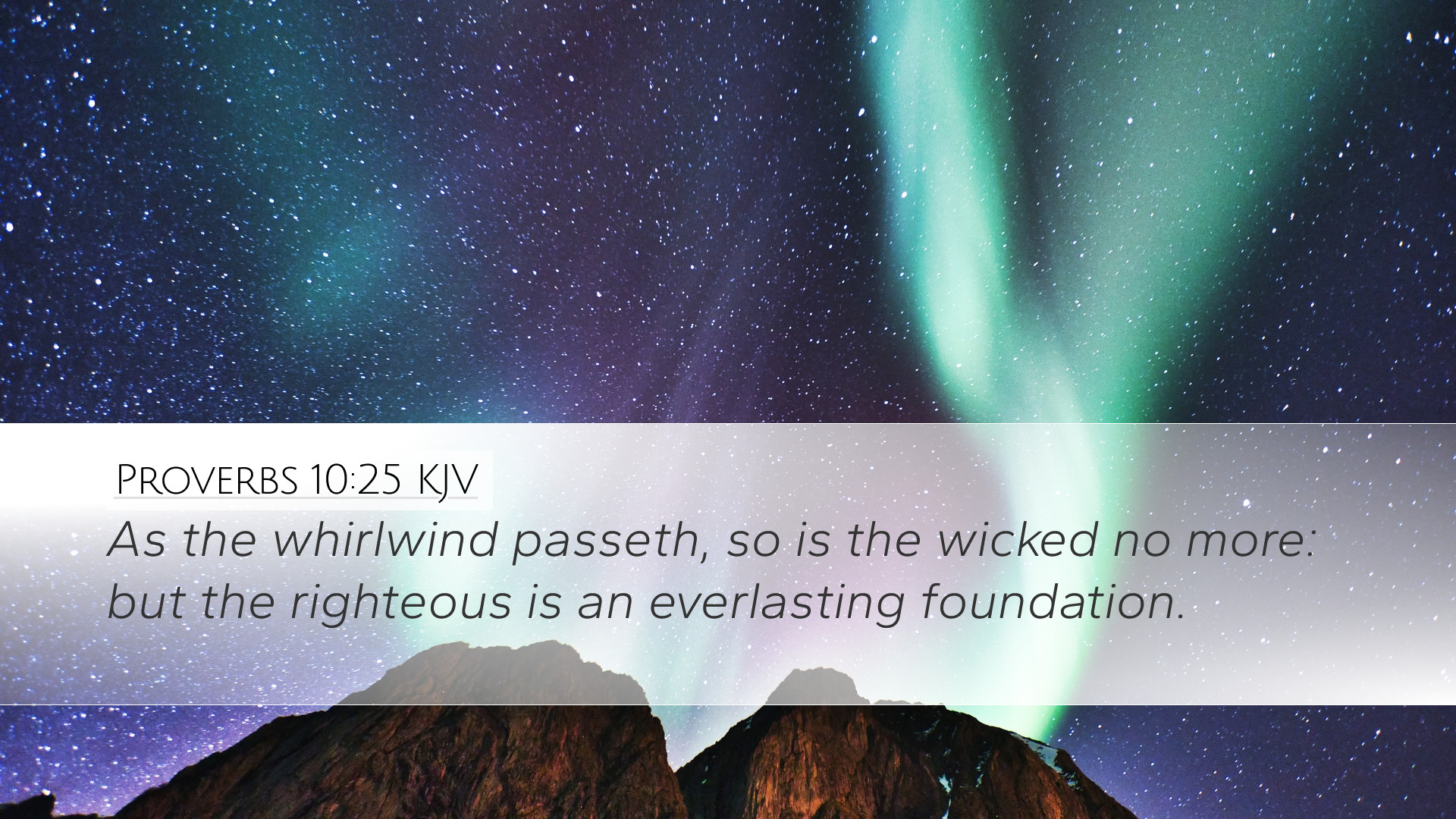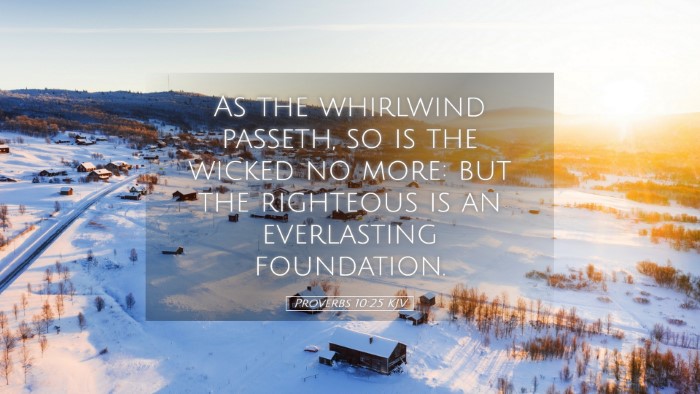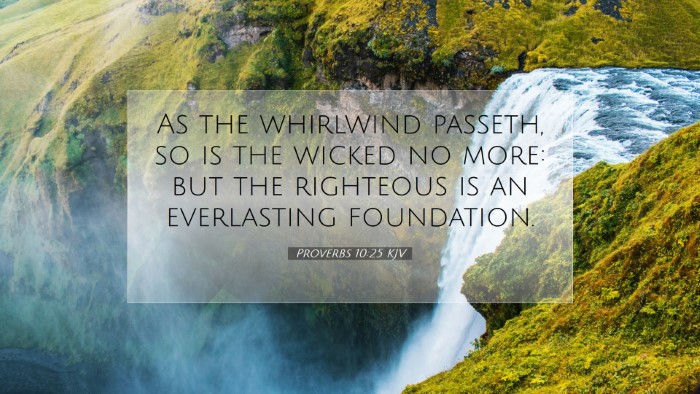Commentary on Proverbs 10:25
Verse (KJV): "As the whirlwind passeth, so is the wicked no more: but the righteous is an everlasting foundation."
Introduction
Proverbs 10:25 presents a striking contrast between the fate of the wicked and that of the righteous. This verse makes a profound statement about the transient nature of evil compared to the enduring stability of righteousness. Scholars from various perspectives have provided rich insights into this text, elucidating its implications for believers. Below, key commentaries are synthesized to enrich understanding.
Exegesis of the Text
The structure of the verse presents two parallel ideas:
- The transitory nature of the wicked
- The lasting strength of the righteous
Matthew Henry notes that the wicked are compared to a whirlwind, emphasizing how quickly they rise and fall. He asserts that the whirlwind symbolizes not only their suddenness but also their chaotic nature—reflecting the instability of their lives and pursuits.
In contrast, the righteous are described as an "everlasting foundation." Albert Barnes emphasizes that this phrase indicates security and enduring strength, suggesting that those who walk in accordance with God's truth possess a solidity that withstands life's storms.
Thematic Exploration
Several themes emerge from this verse that are critical for theological reflection:
- Transience of Evil: The notion that the wicked will eventually perish should serve as a warning to those who engage in unrighteousness. Adam Clarke remarks that the downfall of the wicked is not merely a consequence of external circumstances but often stems from their own moral choices.
- Stability of Righteousness: Righteousness is described as a foundational element in life. Barnes provides the insight that the righteous are likened to a strong edifice built upon enduring truth—a metaphor that invites believers to assess their own spiritual structures.
- Divine Justice: The juxtaposition highlights God's justice in human affairs. The wicked may seem to prosper for a time; however, ultimately, justice prevails. Henry emphasizes that God's judgments are swift and definite, cutting off the wicked before their scheme can unfold fully.
Practical Application
This verse carries both a prophetic warning and a message of hope:
- Hope for the Righteous: For the believer, this verse reassures that a life grounded in righteousness will endure through trials. Such individuals should remain steadfast, knowing that their foundation is secure in God's promises.
- Call to Action for the Wicked: Addressing those living unrighteously, it prompts a turning away from wicked ways. Clarke notes that the realization of fleeting success among the wicked should prompt self-reflection and repentance.
- Encouragement for Ministry: Pastors and theologians can use this verse to encourage believers to build lives on the truth of Scripture. It can serve as a basis for discussions on how to maintain spiritual integrity in a world often influenced by chaos and sin.
Theological Insights
The theological implications of Proverbs 10:25 extend into discussions of sin, salvation, and the character of God:
- The Nature of Sin: This verse affirms that sin leads to destruction. The rapidity with which the wicked are removed serves as a stark reminder of the consequences of turning from God's ways.
- The Assurance of Salvation: The comparison indicates the eternal security of believers. Righteousness is not something to be earned; rather, it is a state bestowed by grace through faith. The commentary of Henry elaborates on how this verse should encourage believers by assuring them that their standing with God will not be shaken.
- The Character of God: God's justice and mercy are both evident in this passage. He is depicted as a sovereign ruler who punishes iniquity while rewarding righteousness. This can prompt profound reflection on God’s holiness and grace in one's life.
Conclusion
Proverbs 10:25 serves as a powerful reminder of the transient nature of sin and the enduring promise of righteousness. The insights drawn from various commentators provide a multifaceted understanding of the text. For pastors, scholars, and students alike, reflecting on this verse challenges us to evaluate our lives in light of eternal truths and divine justice.
Thus, as we navigate the complexities of life and faith, let us build our lives upon the everlasting foundation of Righteousness, always remembering that the whirlwind of wickedness may pass, but God's truth remains unshaken.


